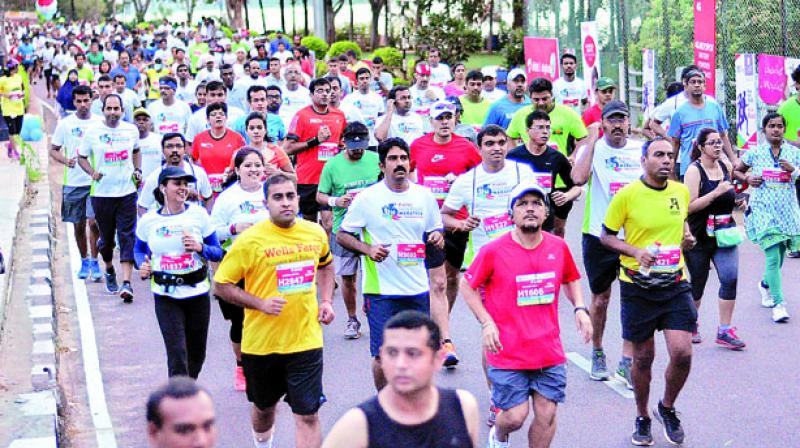Seaweed pouches for marathoners

London: More than 41,000 people will run the London Marathon on Sunday, and when they reach mile 23, the organisers will give them edible pods made of seaweed extracts instead of a plastic water bottle to reduce the massive amount of plastic waste it generates.
A CNN report said they wanted to cut the number of plastic bottles used by 200,000.
The Ooho seaweed capsules made by London-based startup Skipping Rocks Lab can be cheaper to produce than plastic and the thin membrane that forms the pod is edible and tasteless.
“What we use is the building blocks of seaweed," Rodrigo Garcia Gonzalez, one of the startup’s founders, told the US broadcaster. “We remove all the green stuff and the smelly stuff.”
The pods biodegrade within six weeks if not eaten while a plastic bottle will take 450 or more years to decompose. It’s the first time endurance runners are using them.
“The marathon is a milestone ... we are hoping we will demonstrate that it can be used at scale in the future," said Gonzalez.
The pods are meant for people on the move, such as runners and music festival attendees. They can be filled with a variety of liquids. “Espresso Martinis have been the most popular product at festivals, where eating the packaging is also part of the experience," Pierre-Yves Paslier, Garcia Gonzalez’s business partner, told CNN.
The duo met while studying innovative design engineering in London. They say the mission of their company is to "make plastic packaging disappear." In addition to liquid pods, they are also working on green alternatives to cling film and the plastic liners used in throwaway coffee cups. Plastic waste flood. — Agencies
The startup is working to develop machines that can produce the capsules at scale, with a view of leasing them to companies that want to use them to package their drinks or other products, like sauces. Doing so could help solve one of the world’s most pressing environmental challenges: Plastic.
According to a 2017 study published in the journal Science Advances, only 9% of 8,300 million metric tons of plastic ever produced has been recycled.

